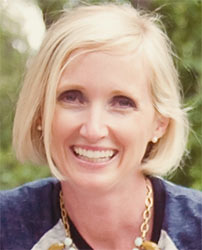Contact Us
While growing up, through a series of explicit and implicit messages, I believed “order” was necessary to be accepted, chosen and loved. In other words, I needed to be perfect.
I couldn’t change the freckles on my skin (which I deemed to be completely imperfect) or the look of my face (which I wasn’t too excited about), but I could change other things. The size of my body primarily.
My quest was to have the perfect body and I was willing to starve myself to get there.
It took less than two years of dabbling in restricting my food before I was anorexic. It took another 10+ years to undo the damage done.
Little did I know that holding myself to a perfect standard, also meant I expected everyone around me to be held to those same expectations. And it wasn’t just food and body image that I felt needed to be perfect, it was my academic endeavors, my home, my car, even my husband.
When my world came crashing down all around me – the night I realized my husband didn’t ONLY have eyes for me – that’s when my perfect life came to a screeching halt.
I thought perfection in all things was the bridge to peace, happiness, wholeness and completeness.
I was terribly wrong.
My husband did the really hard work of recovery first. I stood by angry – watching, waiting, grieving – wondering how this had happened to my perfect life. How could he possibly betray me with images he saw on the computer and women he met from the internet? I thought I was perfect. Why wouldn’t he want just me?
As we limped along through those first few years of recovery, I returned to the familiar control I’d once had over food. The one thing I could control. The one thing that I thought would allow me to feel accepted, chosen, whole. When that didn’t quite work, I tried to use my career for acceptance. Surely that would allow me to live a whole and complete life.
I was wrong once again.
It wasn’t until six years into our recovery, after my husband had done a lot of work and I’d done a little, that I saw what wholeness looked like.
I saw it in my husband.
He was vulnerable and willingly risked being fully known by others. He had this confidence, peace and joy that radiated from within.
I saw this and I wanted it. I wanted to risk; to be fully known. But I didn’t even know how or where to begin.
It started small for me, with a group of women that were willing to talk about the messiest pieces of their life. It was in that safe group where I tested being vulnerable and connecting fully with other women. I gained the confidence to try it in my marriage with the man that hurt me more than any other person. Years later, some of us still meet every other week to share our “ugly” with each other.
It was through sharing my ugly and my broken self – my biggest fears, the things I was ashamed of, the mistakes I’d made – I actually started to feel whole. To feel complete.
I thought wholeness and completeness came from living a perfect life. I was so wrong.
Today I know better. I believe wholeness and completeness come from embracing my brokenness. It comes from willingness to drag my ugly truth into the light for others to see. It comes from accepting others exactly where they are and not putting unrealistic expectations on them. It also comes with accepting myself right where I’m at. (And really, it’s more than just acceptance, it’s embracing and loving even those freckles on my skin!) It also comes from allowing God to love me just as I am.
Embracing my brokenness. Working toward fully connecting with God, myself and others. That’s living a whole and complete life.

Shelley Martinkus loves to encourage women and has a special place in her heart for women with a similar story to hers. She is a blogger, speaker and writer. Her first book, Rescued, was released in 2015 and is a guide to help women survive and thrive after sexual betrayal. She is proud to call Denver home where she lives with her husband, Jason and their three young boys. Some of the things that help Shelley survive are comfy pants, running around Wash Park and long talks with Jason after the boys are in bed. You can connect with Shelley at rlforwomen.com.
Read more about Jason’s porn addiction and Shelley’s battle with anorexia in this honest interview. You can also read more from Shelley about how she faced the realization of her husband’s porn use and infidelity, then how she bravely confronted the issue despite fear and uncertainty.
For more resources check out:
Redemptive Living for Women: This is my website where you’ll find a helpful workbook, weekly blog posts and support.
Redemptive Living: My husband Jason’s website where you can find the book he wrote about his journey, free resources for men and more.
Kitchen Convos: This is a series of conversations that my husband, Jason, and I put together to help couples find redemption after betrayal. There is a fee associated with this, but if you choose to participate, we will donate 15% of the proceeds back to MOPS International.
Fight the New Drug: An edgy non-profit that advocates for the fight against porn.
This Christianity Today article shares eye-opening recent stats on porn use in Christian circles.
